Flange supplier
What Is Pipe Flange?
A pipe flange is a device, which connects different pipes, valves, fittings, and other components in a piping system. These flanges act as a support system as there is a vigorous movement of fluids or gases across the system. These protruding ridges securely connect pipelines and prevent any leakage within the systems. The mounting procedures of these components are simple and allow for easy dismantling procedures. They can also be welded in place however, this will not allow them to be inspected or cleaned if the need arises. There are several flange standards, which are used in the piping industry to meet different requirements.
What Is Slip On Flange?
Slip-on flanges are one of the most popular and common flange components used within the piping industry. These flanges are designed with a low profile head or hub, which is attached to the line making use of one or more fillet welds. The size of the bore is larger than the connecting area. They are mainly used in low-pressure systems where the risk of leakage is low. These components are also utilized in applications where the space for installing the fitting is less. The cost of fitting these components is very low making, them highly desirable. Apart from this, they are available in an array of shapes and sizes, which allow them to be fitted in different applications.
Flange International Standards
International Organization for Standardization (ISO) is a federation of worldwide national standards of flanges. The international standards lay down the basic dimensions, surface finish, material, facing type, and other technical information about flanges. The flange standards in Europe are governed by the European EN 1092 series. According to the series, steel flanges have nominal diameter and pressure between PN 2.5 to PN 400. Another European flange standard is the EN 1759, which only consists of ASME and ANSI flanges. The American flanges are standardized, comprising of ASME flanges and DIN flanges (PN 2.5, 6, 10, 16, 25, and 40). It also specifies the PN and DN designations for ASME flanges (PN 20, 50,110, 150, 250, and 420).
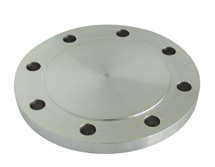
Blind Flange
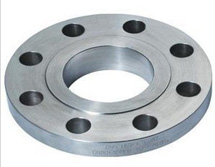
Slip On Flange
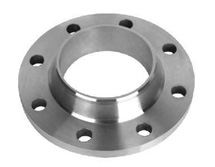
WNRF Flange
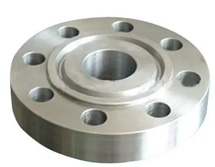
Ring Joint Flange
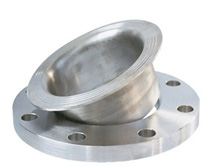
Lap Joint Flange
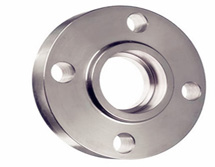
Socket Weld Flange
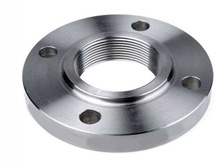
Threaded Flange
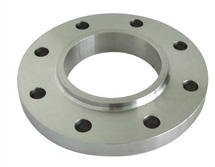
Forged Pipe Flange
Flanges Manufacturing Specification
| Flange Size Range | Flange Type | Flange Pressure Class | Flange Specification (Latest edition) |
|---|---|---|---|
26“ to 60" 1/2“ to 12" 26“ to 48" |
Orifice Flanges ( Slip-on, Weld neck, Threaded) | 400, 600LBS 75 to 300LBS 900LBS |
ASME/ANSI B16.47 |
26“ to 48" 26“ to 60" |
Weld Neck, Blind, Socket Weld, Slip-on, Lap Joint and Threaded Flanges | 150 to 2500LBS 150 to 1500LBS |
ASME/ANSI B16.5 |
| 1" to 12" | Orifice Flanges ( Slip-on, Weld neck, Threaded) | 300 To 2500LBS | ASME/ANSI B16.36 |
| 15mm to 600mm | Slip-on, Blind, and Welding neck flanges | TABLE-J, D, H, T, R, K, F, E, A, S, | BS 10 |
10mm to 1000mm 10mm to 1800mm 10mm to 300mm 10mm to 400mm 10mm to 600mm 10mm to 350mm 10mm to 200mm 10mm to 250mm |
12 (Hubbed slip-on flange), 02 (Loose plate flange for Types 32—37), 01 (Plate flange), 11 (Weld-neck flange), 04 (Loose plate flange for Type 34),05 (Blind flange), 13 (Hubbed | PN2.5 to PN16 PN100 PN40 PN25 PN63 PN250 PN400 PN160 PN320 |
EN 1092-1 /DIN / BS 4504 Flanges |
| ½” to 24” | Stub end -Type: B, A, C (Short pattern) | S40, S10, S80 | MSS SP-43/ ASME/ANSI B16.9 |
Know More About Flanges In Various Material Supply By Us
Nickel Alloy Flange
- Monel 400 Flanges
- Inconel 600 Flanges
- Inconel 625 Flanges
- Incoloy 800 Flanges
- Incoloy 825 Flanges
- Hastelloy C276 Flanges
Other Flange
- Titanium Flanges
- Aluminium Flanges
- Brass Flanges
Duplex/Super Duplex Flange
- Duplex 2205 Flanges
- Super Duplex 2507 Flanges
- ASTM A182 F60
- ASTM A182 F51 Flange
- ASTM A182 F55 Flange
- ASTM A182 F53 Flange